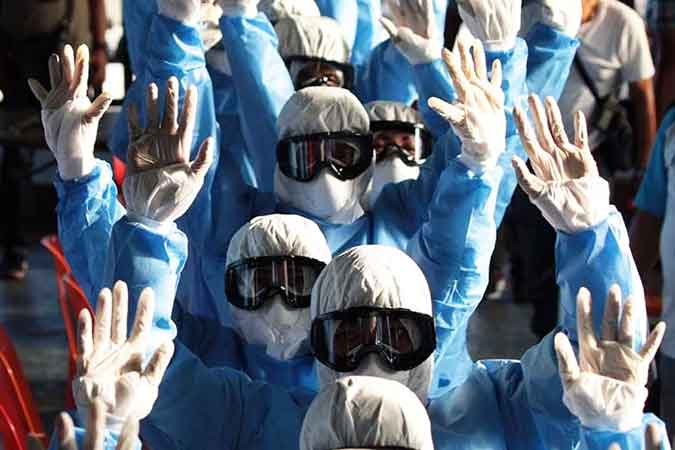
THE Bureau of Customs (BoC) said it hopes to complete by year’s end an audit of products that saw a dramatic surge in demand due to the pandemic to check on whether importers are eligible to claim tax exemptions.
Vincent Philip C. Maronilla, Customs assistant commissioner heading the Post Clearance Audit Group, told BusinessWorld Sunday that the audit will cover goods that saw an increase in demand in the six months to June. The investigation will finish at the end of 2020, he said.
“(We audit mainly) for compliance (since) a lot of them are tax-exempt, but just want to make sure that they have proper permits kasi in demand goods naman ngayon mostly (because most of the in-demand goods) are the ones exempted by law in Bayanihan I and II,” Mr. Maronilla, who is also the bureau’s spokesperson, said over the phone Sunday.
He was referring to the two items of legislation passed to facilitate the containment of the pandemic and the economic recovery, formally known as the Bayanihan to Heal as One Act and the Bayanihan to Recover as One.
“(For the) compliance audit, (we will check) whether or not they were able to meet the requirements para ma-ensure din natin (to ensure) that even if we are granting tax exemptions, they are also complying with the rules,” he added.
He said the exempt goods that saw a surge in demand during the pandemic include medical supplies and equipment and personal protective equipment (PPE). He said the bureau will also look into compliance of importers of non-exempt goods like food and steel.
Republic Act (RA) No. 11469 (Bayanihan I) and RA 11494 (Bayanihan II) provide tax exemptions to crucial supplies and equipment imported during the coronavirus disease 2019 (COVID-19) pandemic.
Meanwhile, he said the bureau expects to raise at least P1 billion from this year’s round of audits on rice shipments between the third quarter of 2019 and June 2020.
Last week, Mr. Maronilla said the BoC found P1.4 billion worth of deficiencies in customs duties, penalties, surcharges, and interest by rice importers due to undervaluation of cargoes.
He said 47 out of 55 audited were found to have committed violations of Customs regulations.
The BoC launched the inquiry in August 2019 after the Federation of Free Farmers (FFF) warned the government may not meet its target collections since imported rice were being undervalued by traders to evade tariffs.
Tariffs imposed on imported rice were set at 35% for Southeast Asian grain value under Republic Act 11203 or the Rice Tariffication Law.
Rice tariff collections hit P11.036 billion in the seven months to July, up 4% from a year earlier.
Rice tariffs go towards funding the P10-billion annual budget of the Rice Competitiveness Enhancement Fund (RCEF), which was created by the Rice Tariffication Law. RCEF supports mechanization and other measures to allow farmers to better compete against imports. — Beatrice M. Laforga
